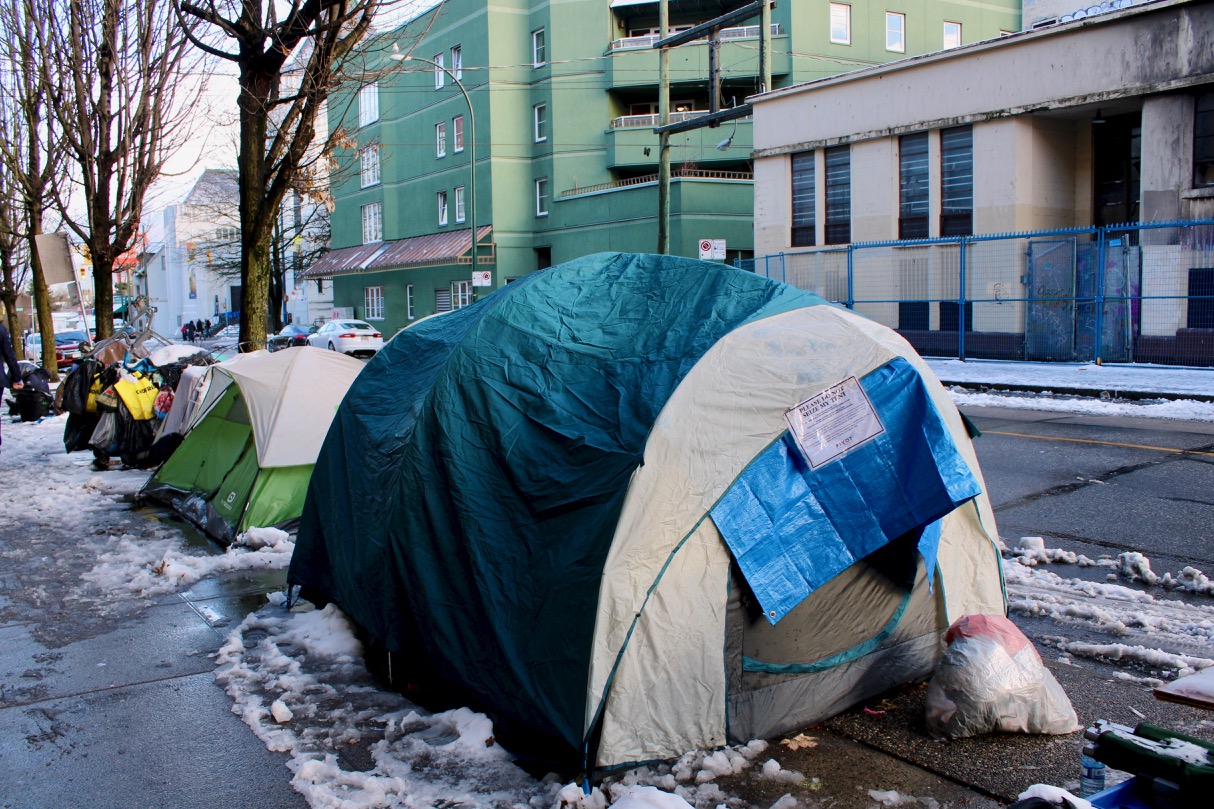After a B.C. study made international headlines, researchers say they’re now rolling out a similar project with more people to refine their findings and strengthen the case for policy changes.
The study gave $7,500 in a lump sum to 50 people living in Vancouver who had recently become homeless, and compared the outcomes with 65 people also experiencing homelessness who did not receive the $7,500 lump sum.
The research found that the group who received the money spent 99 fewer days in shelter or street homelessness, and 55 more days in stable, long-term housing such as a rented apartment. The cash transfer group saved an average of $1,160 and spent $429 more than the group that did not get extra money. Researchers found that study participants who got the lump sum spent that money on rent, transit, food and “durable goods” like furniture or clothes.
The study found that participants who got the $7,500 did not spend more on “temptation goods” than people who did not get the extra money.
The study was conducted by researchers at the University of British Columbia and a non-profit called Foundations for Social Change. For ethical and safety reasons, study participants were limited to people who had been homeless for no longer than two years and did not have severe levels of alcohol or drug use or severe psychiatric symptoms.
Some of the biggest takeaways from the research are findings that challenge long-held beliefs that people living in poverty will spend money on things that are bad for their health. It’s an assumption the researchers heard a lot about while trying to get the study off the ground, and it’s baked into how our existing social safety net emphasizes providing people in need with more services and supports rather than increasing income.
Foundations for Social Change ran a survey that asked what they thought a homeless person would spend $7,500 on.
“Eighty per cent of people said, ‘They'll spend it on drugs, alcohol and cigarettes,’” noted Amber Dyce, CEO of Foundations for Social Change. “Whereas if we asked, ‘Now what if that's you who’s unhoused? How would you spend the money?' The percentage of people who said the money would be used negatively went down significantly.”
That bias proves that we really aren't seeing the individuals in our community who are challenged with being unhoused or displaced as similar to ourselves.
Dyce’s organization and the UBC researchers have now embarked on a second study: 200 participants will get a one-time payment of $8,500, compared to a cohort who don’t get the extra money. That study is set to run until 2024.
“One of the limitations of the pilot project was the sample size — it was just 115 people,” she said. “And the feedback we received was that the sample size just wasn't big enough to really create as much of an impact as we were hoping for.”
The national cost of living crisis, combined with B.C.’s persistently high housing costs, is pushing more people into homelessness or to the brink.
Dyce said her organization plans to use the results of the study to advocate for policy measures, like guaranteed basic income, that emphasize increasing income to improve health and well-being for people living in poverty.
But Dyce knows it’s not only politicians who need to be convinced: it’s voters as well.
“We're kind of into the exciting stuff now, from my perspective: hopefully we can make real change,” she said. “What that looks like is still being determined.” ![]()
Read more: Rights + Justice

















Tyee Commenting Guidelines
Comments that violate guidelines risk being deleted, and violations may result in a temporary or permanent user ban. Maintain the spirit of good conversation to stay in the discussion and be patient with moderators. Comments are reviewed regularly but not in real time.
Do:
Do not: